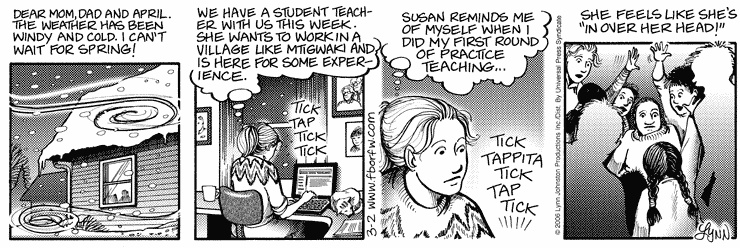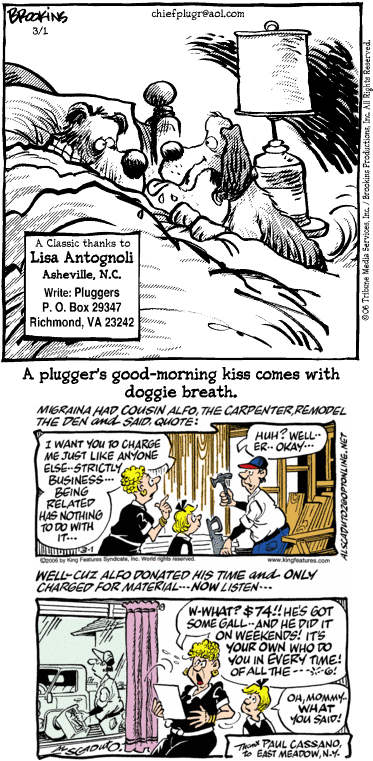Post Content
Pluggers and They’ll Do It Every Time, 3/1/06
We continue our desultory romp through some new comics with two that were interactive before the Interweb make interactivity cool: Pluggers and They’ll Do It Every Time. Both start with a seemingly sure-fire plan: give their readers what they want by actually having them write the jokes. But they take this idea and run with it in radically different directions.
Pluggers aims to celebrate the simple, upstanding, stoic blue color types who form the backbone of this great country. But I’m guessing that it’s unintentional that the life of a Plugger is made by these little anecdotes to look suicidally depressing. The Plugger never complains despite the daily helping of indignities heaped upon him or her. Check out the disoriented look on our protagonist today: you can tell that for a brief moment, he thought that the good-morning kiss was coming from a special someone who’s now gone, like his ex-wife, who’s presumably left him for, I dunno, a raccoon or something. (As a side note, the fact that the anthropomorphic bear Plugger owns a non-anthropomorphic dog doesn’t make this any easier to parse.)
But while Pluggers specializes in selfless nobility as a cover for self-pity, They’ll Do It Every Time serves as a channel for its readers’ pettiest rages. Heavy on the expository matter, it presents a parade of unredeemable jerks saddled with subtle names like “Migraina” who serve as the helpless punching bags of the strip’s ire. Supporting characters exist mainly to complement the main target’s awfulness (the little girl’s “Oh, Mommy … what you said!” is simultaneously incomprehensible and revolting to me). According to Don Markstein’s invaluable Toonopedia, this panel, which dates back to the 1920s, was originally intended to illustrate “the little ironies of everyday life.” If the last couple week’s worth are any indication, today’s version illustrates the little ironies of everyday life, inflated to the subjects of hateful mean-spiritedness.
![]()



